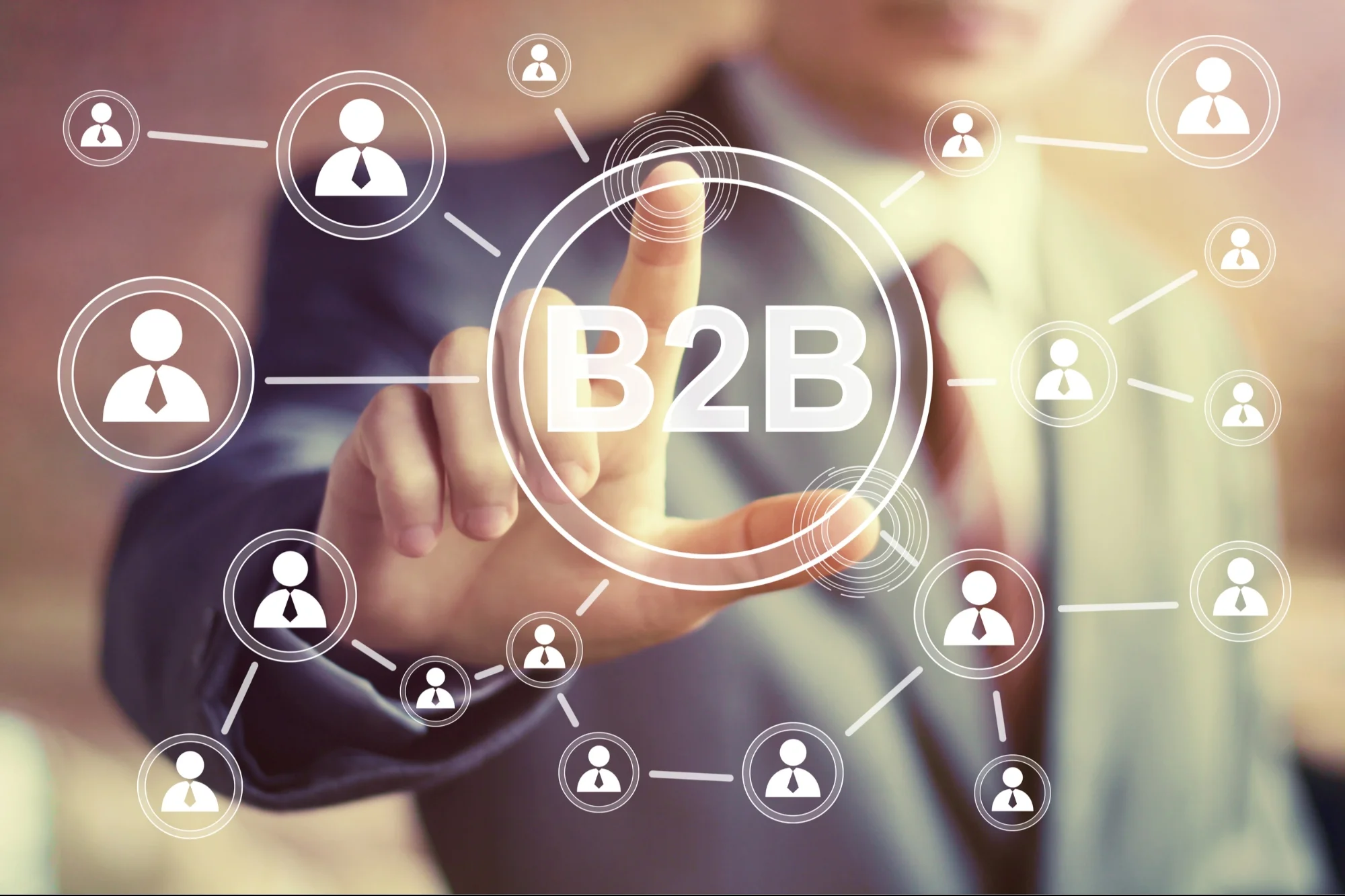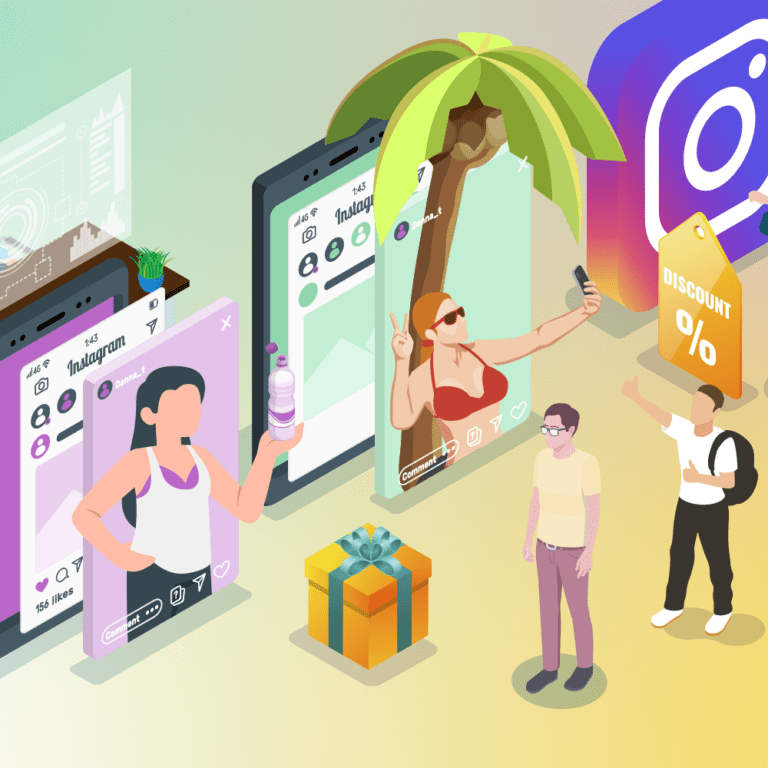The Power of Influencer Marketing in B2B: Strategies, Challenges, and Success


Rahmat Olayiwola
Content Writer
Table of content
Introduction
Business-to-business (B2B) marketing might seem more difficult and uninteresting than business-to-consumer (B2C) marketing. Especially when B2C companies can implement a lot of marketing strategies to boost sales. One of the popular forms of marketing is influencer marketing which is commonly used for B2C companies. However, influencer marketing is no longer reserved solely for B2C brands. Business-to-Business (B2B) companies are discovering the immense potential of leveraging industry experts and thought leaders to reach their target audience effectively. In this comprehensive guide, we’ll delve into the concept of influencer marketing in B2B, explore the unique challenges it presents, and provide actionable strategies for seamless integration.
1. Understanding B2B Influencer Marketing
Defining B2B Influencer Marketing
B2B influencer marketing involves collaborating with industry experts, thought leaders, or respected figures within a specific niche to promote products, services, or ideas to other businesses. These are people who are managers, CEOs, COOs, and directors of companies that are relevant in each industry. These influencers possess the knowledge and credibility to sway the opinions and decisions of professionals and decision-makers in their respective fields. Imagine your company being referred by Tony Elumelu, that can only bring more traffic and customers to you as it automatically gives your company a special kind of credibility.


Key Differences Between B2B and B2C Influencer Marketing
While B2B and B2C influencer marketing share similarities, they also have significant differences:
Audience: B2B influencers target professionals and decision-makers, those people who sign contracts after a series of evaluations and meetings whereas B2C influencers reach consumers who make decisions that affect only themselves. B2B audiences often require in-depth information and expertise as their decision affects the whole company.
Sales Cycle: B2B sales cycles are typically longer and more complex than B2C. There are estimates to be drawn, strategies, and blueprints of projects to be examined and approved by various departments before deciding to go with a certain company. Influencer marketing in B2B may involve nurturing leads over an extended period.
Content Type: B2B influencer marketing often relies on whitepapers, webinars, case studies, and educational content, while B2C leans more toward lifestyle and entertainment content. B2B marketing is more technical and industry-specific, they give details about the product in a more comprehensive way than that of B2C.


2. Challenges in B2B Influencer Marketing
Niche Audiences and Limited Reach
In B2B, finding influencers who cater to specific niches can be challenging. Finding the right person with the right standing and voice in the industry might be quite challenging for B2B marketers. Additionally, B2B audiences are smaller compared to the broad consumer market, limiting reach.
Trust and Credibility
B2B buyers prioritize trust and credibility when making decisions. They want to know that the company is solid and able to deliver the required services. B2B buyers want brands that have been in the industry for a while and show potential of being one of the top service providers for them. Collaborating with influencers who lack authenticity or industry expertise can damage your brand’s reputation.
Measuring ROI
Measuring the success of B2B influencer marketing can be complex. Metrics like lead generation, conversion rates, and customer acquisition costs must be accurately tracked to determine ROI.


Regulatory Compliance
Certain B2B industries, such as finance and healthcare, face stringent regulatory requirements. Failing to comply with these regulations in influencer marketing can lead to legal consequences and this leads to loss of credibility and professionalism.
Content Control
Balancing authentic influencer content with the need for brand consistency can be challenging. Striking the right balance is crucial to maintaining a strong brand image. In the strive to gain the attention of more audience, care must be taken not to lower the expectations that your buyers have of the brand.
Enjoying the Article?
Sign up For Our Newsletter
3. Effective Integration Strategies
Identifying the Right Influencers
Choose influencers who align with your target audience and industry. Look for those with a track record of producing high-quality, educational content.
Building Authentic Relationships
Establish genuine relationships with influencers. Engage with them beyond campaigns to foster trust and long-term partnerships.
Crafting High-Quality Content
Collaborate with influencers to create informative, insightful content that resonates with B2B audiences. This might include webinars, blog posts, whitepapers, and videos.

Defining Clear Campaign Goals
Set specific goals for your influencer marketing campaigns, whether it’s brand awareness, lead generation, or sales. Clear objectives help measure success effectively.
Monitoring and Measuring Success
Use robust analytics tools to track campaign performance. Monitor metrics such as website traffic, leads generated, and conversion rates to assess ROI.
Long-Term Partnerships
Consider long-term collaborations with influencers to maintain visibility and credibility in your industry. Continuously adapt strategies based on evolving trends and audience needs.
Conclusion:
Incorporating influencer marketing into your B2B strategy can be a powerful tool for building brand awareness, trust, and credibility. While challenges exist, they can be overcome with careful planning, strategic partner selection, and a commitment to providing valuable, authentic content to your target audience. As the B2B landscape continues to evolve, influencer marketing will undoubtedly play a vital role in reaching and engaging with decision-makers and professionals in your industry.
Recent Post
-
20 Jan 2025 BlogEric Emanuel NYC Collaborations A Look at the Brand's Partnerships with Major Sports Teams and Fashion Icons
-
14 Jan 2025 BlogFick Party - Heiße Escort-Ladys
-
13 Jan 2025 BlogNutten Essen - Heißes Escort-Model
-
10 Jan 2025 BlogHuren Essen Sinnliche Damen
-
 12 Oct 2023 BlogHow to Prevent Stock Shortages with Data and Analytics
12 Oct 2023 BlogHow to Prevent Stock Shortages with Data and Analytics
Ready to accelerate your company's brand transformation?
We look forward to getting to know you, talking CX, and (our favorite part) learning how we can make your life easier.











